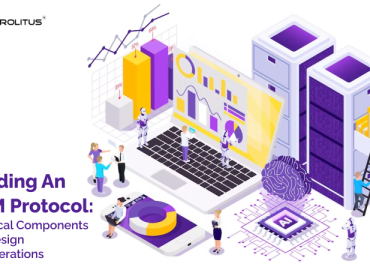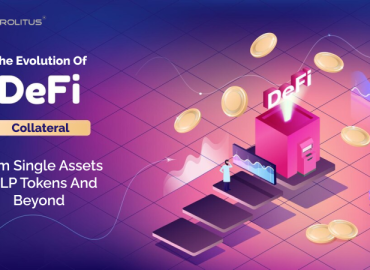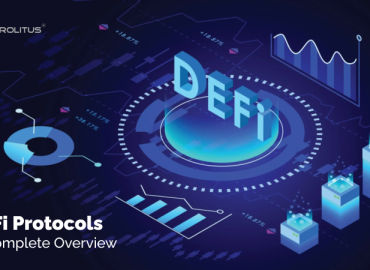Introduction to Oracle Query Mechanisms in DeFi
Decentralized Finance (DeFi) has emerged as a groundbreaking paradigm that aims to revolutionize traditional financial systems by leveraging blockchain technology. At the core of DeFi lies the concept of trustless, peer-to-peer transactions and automated financial processes. However, for DeFi platforms to operate effectively and provide real-world value, they require access to reliable, up-to-date external data, such as asset prices, interest rates, and other relevant information.
This is where oracle query mechanisms play a pivotal role. Oracles serve as bridges between the blockchain and the outside world, facilitating the retrieval of off-chain data that is essential for various DeFi applications, including decentralized exchanges, lending platforms, prediction markets, and more. In this exploration, we delve deep into the intricacies of oracle query mechanisms in the DeFi landscape, uncovering their significance, types, operational principles, and the challenges they seek to address.
The Need for Oracles in DeFi
DeFi platforms, despite their decentralized nature, heavily rely on real-world data to execute smart contracts and make informed decisions. For instance, a lending protocol must know the current value of an asset before determining the collateral value and issuing a loan. Similarly, a decentralized exchange needs accurate price feeds to execute trades at fair market rates. However, integrating external data sources into a trustless and tamper-proof blockchain environment is not a straightforward task.
This is where oracles step in. An oracle acts as a data provider, delivering off-chain information onto the blockchain in a way that can be trusted by smart contracts. The oracle’s role is to source, verify, and relay data to ensure that DeFi applications operate with accuracy, transparency, and security.
The Role of Oracle Query Mechanisms
Oracle query mechanisms are the frameworks through which DeFi platforms interact with oracles to access external data. These mechanisms encompass various methodologies, protocols, and consensus mechanisms designed to retrieve, verify, and integrate data from diverse sources into the blockchain ecosystem. The choice of oracle query mechanism profoundly impacts the reliability, decentralization, and responsiveness of the data provided to DeFi applications.
In the subsequent sections of this deep dive, we will explore the different types of oracle query mechanisms, their technical underpinnings, and the challenges they address. By understanding these mechanisms, we can gain insights into how DeFi platforms ensure data accuracy and integrity, enabling users to transact, invest, and participate in financial activities within a decentralized and secure environment.
Importance of Reliable Data in DeFi Platforms
Decentralized Finance (DeFi) has ignited a financial revolution by eliminating intermediaries and enabling borderless, permission less transactions. However, the success and viability of DeFi platforms hinge on the accuracy, timeliness, and reliability of the data they interact with. In this exploration, we delve into the pivotal role that reliable data plays in DeFi, and why it serves as the foundation upon which the entire ecosystem thrives.
Data-Driven Decision Making
At the heart of DeFi lies the execution of smart contracts, self-executing agreements that facilitate transactions and operations without the need for intermediaries. These smart contracts are programmed to respond to certain conditions or triggers. For instance, a lending protocol might liquidate collateral if its value falls below a certain threshold. To execute these conditions accurately, smart contracts must rely on real-time and accurate data, such as asset prices.
Liquidity and Market Efficiency
DeFi platforms heavily rely on data to maintain liquidity and ensure market efficiency. In decentralized exchanges, the prices of assets determine trade executions. Accurate price feeds are crucial to prevent arbitrage opportunities, where users exploit price differences across platforms. Reliable data empowers traders and investors to make informed decisions and seize opportunities with confidence.
Risk Management and Collateralization
Lending and borrowing protocols are fundamental to DeFi, allowing users to leverage their assets without traditional intermediaries. However, the value of the collateral locked in these protocols dictates the amount of borrowing allowed. Without reliable data on asset prices, determining collateral values becomes a risky endeavor, potentially leading to undercollateralized loans and financial instability.
Decentralized Oracles and Data Sources
To integrate real-world data into the blockchain, DeFi platforms rely on oracles. These oracles fetch external data and provide it to smart contracts for execution. However, the accuracy of this data is crucial. An unreliable oracle or erroneous data can trigger unintended actions, causing financial losses or disrupting platform operations.
Mitigating Risks and Ensuring Security
The integrity of DeFi platforms hinges on the trustworthiness of data inputs. Malicious actors may attempt to manipulate data sources or oracles to exploit vulnerabilities. Therefore, DeFi projects need robust security measures, including decentralized oracle networks, data verification mechanisms, and consensus protocols, to ensure the accuracy and tamper resistance of the data they use.
Future Growth and Adoption
As the DeFi landscape continues to expand, the reliance on reliable data becomes even more pronounced. The development of new financial products, derivatives, prediction markets, and more relies on accurate data inputs. Institutional and mainstream adoption of DeFi hinges on the availability of trusted data sources, as traditional financial entities require accurate information to comply with regulations and manage risk.
Reliable data serves as the bedrock upon which the DeFi ecosystem thrives. It enables the execution of smart contracts, enhances liquidity, enables risk management, and paves the way for innovative financial products. As the DeFi space evolves, the importance of maintaining the highest standards of data accuracy and integrity remains paramount, ensuring the continued growth and sustainability of decentralized finance.
Types of Oracle Query Mechanisms in DeFi
Decentralized Finance (DeFi) platforms rely on oracle query mechanisms to retrieve accurate and timely external data for smart contract execution. These mechanisms come in various types, each with its own approach to fetching, verifying, and delivering data onto the blockchain. Let’s explore the primary types of oracle query mechanisms in the DeFi landscape:
- On-Chain Oracles:
On-chain oracles are integrated directly into the blockchain network. They work by having data sources, aggregation algorithms, and verification processes all executed within the blockchain itself. These oracles can be implemented as smart contracts, allowing for the entire data retrieval and verification process to be transparent and auditable on the blockchain.
Advantages:
- Improved transparency as data retrieval and verification are visible on-chain.
- Reduced reliance on external off-chain components.
- Simplified integration into smart contracts.
Challenges:
- Limited scalability due to increased computation on the blockchain.
- Potentially higher gas costs and transaction fees.
- Off-Chain Oracles:
Off-chain oracles fetch data from external sources and relay it to the blockchain. The data aggregation, verification, and consensus mechanisms occur outside the blockchain environment. This approach can include multiple layers of validation before the final data is relayed to the smart contract.
Advantages:
- Reduced strain on the blockchain, leading to better scalability.
- Flexibility in integrating with various data sources.
- Lower gas costs compared to on-chain oracles.
Challenges:
- Reliance on off-chain components introduces some centralization risk.
- Complexity in managing data verification and consensus off-chain.
- Hybrid Oracles:
Hybrid oracles combine elements of both on-chain and off-chain mechanisms. They can use off-chain processes to fetch, aggregate, and verify data, and then commit a summary or proof of the data onto the blockchain. This approach balances the benefits of both on-chain and off-chain mechanisms.
Advantages:
- Improved scalability through off-chain data processing.
- Enhanced security through on-chain data commitment.
- Potential reduction in gas costs compared to full on-chain oracles.
Challenges:
- Complexity in synchronizing on-chain and off-chain components.
- Balancing security and decentralization in the data verification process.
- Cross-Chain Oracles:
Cross-chain oracles extend the oracle concept beyond a single blockchain. They facilitate the exchange of data between different blockchain networks. This is especially useful for DeFi applications that span multiple blockchains or require information from networks not natively supported by the primary blockchain.
Advantages:
- Facilitates interoperability between disparate blockchain networks.
- Enables DeFi applications to access data from various ecosystems.
- Supports complex financial products that involve multiple assets on different chains.
Challenges:
- Technical complexities in bridging and verifying data across different blockchains.
- Potential security risks if not implemented and audited properly.
In the dynamic landscape of DeFi, the choice of oracle query mechanism depends on factors like the specific use case, data source reliability, decentralization goals, and the desired balance between on-chain and off-chain processes. The selection of the appropriate oracle mechanism plays a critical role in ensuring the accuracy, reliability, and security of data inputs for DeFi applications.
Technical Architecture of Oracle Query Mechanisms
The technical architecture of oracle query mechanisms in Decentralized Finance (DeFi) is a complex framework that bridges the gap between blockchain networks and external data sources. It involves a series of components and processes designed to ensure the accuracy, reliability, and security of data inputs for smart contracts. Let’s delve into the key elements of the technical architecture:
- Data Sources and Aggregators:
Data sources provide the raw information required by DeFi applications, such as asset prices, weather conditions, or real-world events. These sources can include financial market APIs, IoT devices, APIs from authoritative databases, and more.
Aggregators collect and aggregate data from multiple sources to enhance data reliability and reduce the impact of outliers. Aggregation algorithms compute a weighted average or median to generate a consensus value, minimizing the risk of manipulated or erroneous data.
- Oracle Nodes and Providers:
Oracle nodes are responsible for fetching data from various sources and relaying it to the blockchain. These nodes can be run by individuals or entities interested in providing data to the DeFi ecosystem.
Oracle providers, sometimes referred to as data feed providers, offer a service by running oracle nodes and ensuring the accuracy and timeliness of the data they deliver. They play a critical role in the oracle network’s reputation and reliability.
- Data Verification and Consensus:
Ensuring the accuracy of the data before it’s relayed to the blockchain is crucial. Oracle networks implement data verification mechanisms, such as cryptographic proofs or consensus algorithms, to validate the authenticity and integrity of the fetched data.
Consensus protocols prevent a single faulty oracle node from compromising the overall accuracy. This involves comparing data from multiple oracle nodes and considering the majority or weighted average to determine the final data value.
- Smart Contracts Integration:
Oracle query mechanisms interact with smart contracts by delivering data in a format that can be processed by these self-executing agreements. This often involves encoding the data and its metadata in a way that the smart contract can interpret and utilize.
- Chainlink Architecture (Example):
Chainlink, one of the most well-known oracle networks, follows a technical architecture that showcases these components. Chainlink nodes fetch data from various sources, aggregate it, and provide cryptographic proofs of its authenticity. These proofs are then relayed to the requesting smart contracts on the blockchain. Chainlink’s decentralized oracle network aims to ensure both the security of data transmission and the reliability of the provided data.
- Off-Chain Verification and Reputation:
Some oracle networks emphasize off-chain data verification and validation processes. These off-chain components include reputation systems that assess the performance and reliability of oracle nodes and providers. Nodes with higher reputation scores are more likely to be selected for data retrieval tasks.
The technical architecture of oracle query mechanisms in DeFi is a complex orchestration of data sources, nodes, aggregators, consensus mechanisms, and smart contracts. Its purpose is to ensure the accurate and timely delivery of external data onto the blockchain, enhancing the functionality and reliability of DeFi applications. As the DeFi ecosystem evolves, the architecture continues to adapt and innovate to meet the demands of a decentralized and data-driven financial landscape.
Innovations and Future Trends in Oracle Query Mechanisms
The realm of Decentralized Finance (DeFi) is constantly evolving, and the field of oracle query mechanisms is no exception. As DeFi continues to gain momentum, innovations and advancements in oracle technology are shaping the way data is retrieved, verified, and integrated into the blockchain ecosystem. Here are some of the key innovations and future trends in oracle query mechanisms:
- Decentralized Governance of Oracle Networks:
One of the significant trends is the decentralization of oracle networks’ governance. Through decentralized autonomous organizations (DAOs), participants in the DeFi ecosystem can collectively make decisions about oracle parameters, data sources, and updates. This democratized approach enhances transparency, reduces centralization risks, and fosters community involvement in oracle operations.
- Decentralized Data Sourcing and Verification:
Innovations in decentralized data sourcing and verification are emerging. Using technologies like trusted execution environments (TEEs) and zero-knowledge proofs, oracles can prove the accuracy of data without revealing the raw data itself. This enhances privacy and security while still ensuring data integrity.
- Real-World Data Integration:
DeFi is expanding beyond purely financial use cases. Oracles are being leveraged to integrate real-world data into applications such as supply chain management, insurance, and IoT-based systems. This expansion broadens the potential applications of blockchain technology beyond finance.
- Machine Learning and AI Integration:
Machine learning and artificial intelligence are being integrated into oracle networks to enhance data validation and prediction accuracy. These technologies can aid in identifying anomalies, validating complex data sets, and predicting potential data manipulation attempts.
- Hybrid Oracle Solutions:
Hybrid oracle solutions that combine on-chain and off-chain components are gaining traction. These solutions seek to balance the advantages of both approaches, such as reducing on-chain computation while maintaining the security and transparency of the blockchain.
- Trusted Data Feeds:
Oracle networks are working to establish trusted data feeds that rely on data sources with strong reputations and verifiable track records. This ensures that the data provided to DeFi applications is consistently accurate and reliable.
The future of oracle query mechanisms in DeFi is marked by innovation, decentralization, enhanced security, and broader applications. These advancements will not only address the challenges present today but also open up new avenues for the integration of blockchain technology and external data sources. As the DeFi landscape continues to evolve, oracle mechanisms will play a critical role in shaping its trajectory and expanding its capabilities.
The Final Thought: Enhancing DeFi Reliability through Oracle Query Mechanisms
The evolution of Decentralized Finance (DeFi) has brought about a radical transformation in the financial landscape, offering unprecedented access, transparency, and autonomy to users. However, the success of DeFi hinges on the accuracy, security, and reliability of external data that smart contracts rely on. Oracle query mechanisms serve as the vital bridge between blockchain networks and real-world information, playing a pivotal role in ensuring the trustworthiness of DeFi platforms.
Through a deep dive into the world of oracle query mechanisms, we’ve explored the nuances of their operation, types, challenges, and innovations. These mechanisms bring external data onto the blockchain, enabling smart contracts to execute accurately and securely. They offer a solution to the “oracle problem,” where reliable off-chain data is required in a trustless, decentralized environment.
The importance of oracle query mechanisms in DeFi cannot be overstated. They underpin critical financial operations, from price determinations and collateral valuations to trading executions and risk management. By aggregating, verifying, and delivering data, oracle mechanisms empower DeFi platforms to offer diverse financial products and services that were previously only possible within centralized systems.
However, these mechanisms are not without their challenges. Data source reliability, centralization risks, manipulation attempts, and regulatory compliance all pose obstacles that must be navigated to ensure the integrity of the data used in DeFi applications. As the landscape continues to evolve, these challenges will be met with innovation and novel solutions, driving the industry toward greater decentralization, security, and reliability.
The future holds promise for oracle query mechanisms in DeFi. Decentralized governance, cross-chain interoperability, enhanced data verification, and expanded real-world data integration are just a few of the trends shaping the landscape. As the DeFi ecosystem matures, oracle query mechanisms will adapt and evolve, creating a foundation for a decentralized financial future that is not only accessible but also built on a bedrock of trust, accuracy, and security.
In a world where traditional finance meets cutting-edge technology, oracle query mechanisms stand as a testament to the power of innovation in shaping a new era of finance. As we journey further into the realm of decentralized possibilities, these mechanisms will remain a cornerstone of DeFi’s reliability and integrity.





